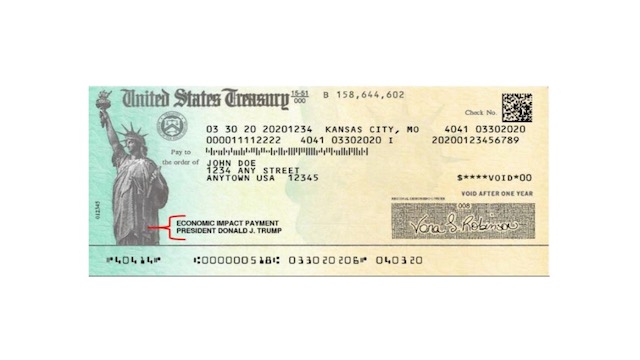 Still waiting for your coronavirus economic stimulus check? There are a number of reasons you might not have received it yet, and plenty more to be wary of offers to help expedite the process. The bottom line is that thieves know you want the money now, and they’re taking advantage of that anxiety in spades.
Still waiting for your coronavirus economic stimulus check? There are a number of reasons you might not have received it yet, and plenty more to be wary of offers to help expedite the process. The bottom line is that thieves know you want the money now, and they’re taking advantage of that anxiety in spades.
When will I receive my Economic Stimulus Payment?
The first batch of payments began when the IRS sent payments to Social Security recipients who filed tax returns and included direct deposit information on their returns. The second batch of checks will go to Social Security recipients who did not file 2018 or 2019 returns and receive their benefits through direct deposit. For everyone else, in early May, the IRS will begin mailing paper checks. Five million checks will go out each week and they will be sent to households with the lowest gross income first. The process will continue each week as the IRS works its way up to households with higher gross incomes. According to the House Ways and Means timetable, the entire process could take up to twenty weeks.
Beware of offers to expedite your Economic Stimulus Payment
Unfortunately, some people may need their Economic Stimulus Payment before their slot in the timetable. And therein lies the problem—and the opportunity for scammers.
Scam #1: IRS calling
No matter what you might think, hope, or dream of, the IRS is not going to call you to ask for your confidential information so they can expedite your payment. If your CallerID tells you the caller is from the IRS, it’s a scam. Don’t even answer the phone because if you do, you will engage. If you engage, you’ll be vulnerable. Scammers now have their own call centers with people who have been trained to persuade. Do not give them the opportunity.
Scam #2: Email from the IRS
The IRS does not send emails asking for information. They do not send emails with attachments. They will not send you a link to expedite your payment. If you receive an email from the IRS, mark it as junk and trash it. Do not reply or click a link in the email because that will, at best, confirm your email address or, at worst, take you to a website that will download malware on your computer. And attachments, well, you get it. Right?
Scam #3: Let me help you get your payment sooner
This is basically a repeat of the first two scams. The only thing that changes is the name, and quite possibly that you’ll be asked to pay a small fee to expedite your Economic Stimulus Payment. If you do this, be prepared for life in financial hell. You will be opening up yourself—and your bank account—to a very long battle against fraud.
Scam #4: The fake check
A twist on the overpayment scam, this one is bound to trap a lot of people. First off, if the IRS has your direct deposit information from your tax return, they will deposit the money directly into your bank account. If you always rely on paper (believe me, it’s not safer) you should do two things to make sure you’re not being scammed. First, make sure the check is an official government check. It should look something like the photo in this post. Second, use the IRS Economic Impact Payment tool to check the status of your payment.
